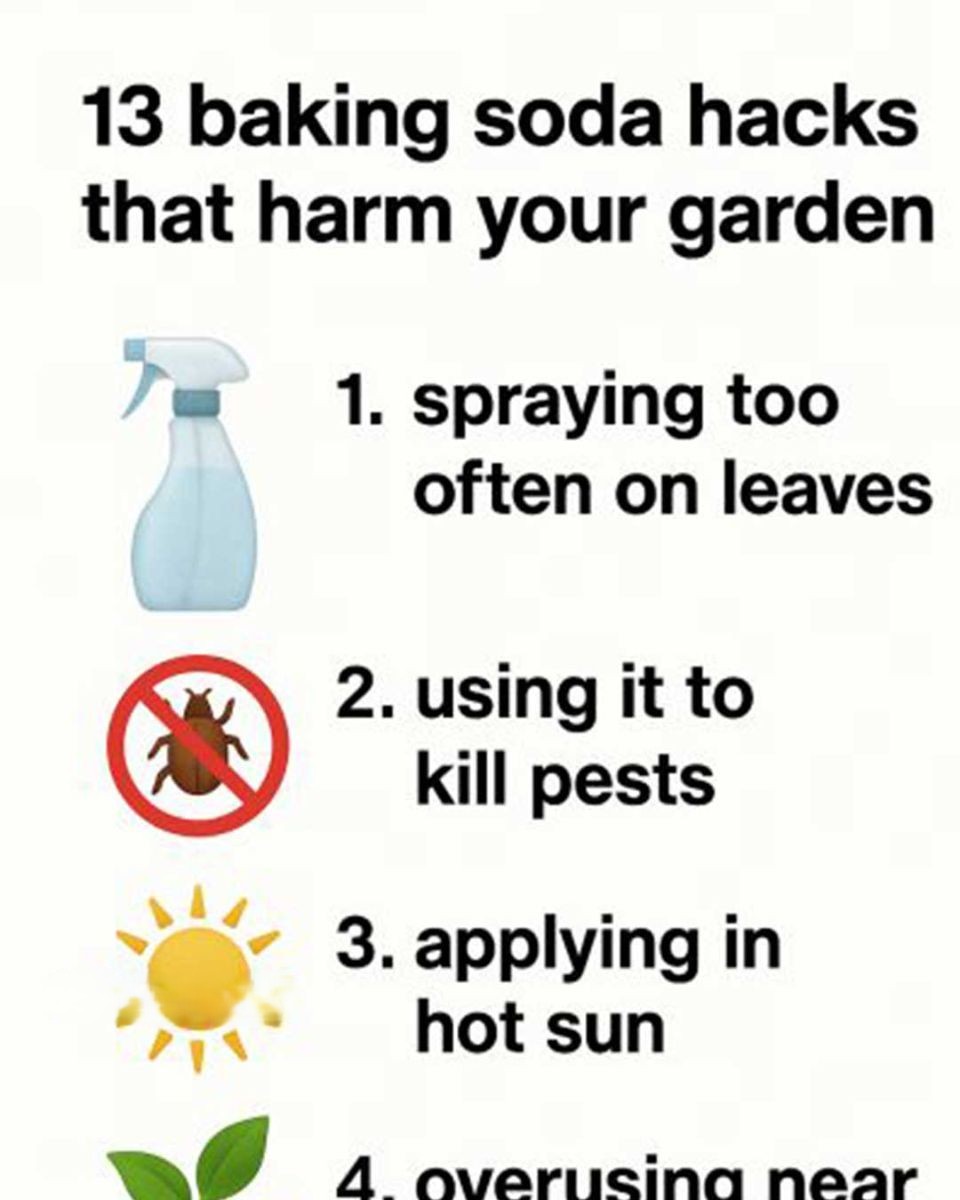7. Potential Damage to Beneficial Microorganisms
The soil is teeming with beneficial microorganisms that play a crucial role in plant health, aiding in nutrient uptake and disease resistance. Baking soda can disrupt this delicate microbial balance by raising the soil’s alkalinity.
High soil pH levels can deter beneficial bacteria and fungi, leading to a less healthy soil structure and reduced fertility. To protect soil health, limit baking soda applications and consider incorporating organic matter to support microbial diversity.
8. Risk of Salt Build-Up in Soil
Baking soda, chemically known as sodium bicarbonate, can contribute to salt accumulation in the soil over time. High salt concentrations can lead to osmotic stress, where plants struggle to take up water, resulting in wilting and poor growth.
To prevent salt build-up, use baking soda sparingly and ensure good drainage in your garden beds. Regularly flushing the soil with water can also help mitigate salt accumulation.
9. Misuse as a Fungicide
Although baking soda can have some fungicidal properties, it’s not a cure-all solution. Its effectiveness is limited to preventing certain fungal spores from germinating but is not effective against established infections.
Moreover, improper use, such as applying it in high concentrations or on sensitive plants, can cause more harm than good, leading to leaf burn and tissue damage. For fungal problems, it’s often better to use commercial fungicides specifically designed for garden use.
10. Impact on Soil Nutrient Availability
The alteration of soil pH by baking soda can affect the availability of key nutrients. In alkaline conditions, elements like iron, manganese, and phosphorus become less soluble, making it difficult for plants to absorb them.
This nutrient lockup can manifest as chlorosis, poor growth, and reduced yields. Regular monitoring of soil pH and nutrient levels is essential if you frequently use baking soda in your garden.
11. Incorrect Mixing Ratios
Using incorrect mixing ratios when preparing baking soda solutions can lead to plant damage. A common mistake is using too much baking soda, thinking it will enhance effectiveness, but this can result in leaf burn and soil pH imbalances.
Always follow recommended guidelines, typically 1 teaspoon of baking soda per quart of water. If unsure, start with a small test area and observe the plant’s response before widespread application.
12. Negative Effects on Seed Germination
Exposing seeds to baking soda can inhibit germination. The alkaline environment created by baking soda can prevent seeds from absorbing water, a crucial step in the germination process.
If you plan to use baking soda in areas where you intend to sow seeds, do so well in advance and ensure the soil is neutralized by adding organic matter or acidifying agents like sulfur to balance the pH.
13. Ineffectiveness on Certain Weeds
Baking soda is often suggested as a natural weed killer, but its effectiveness is limited. While it may desiccate the leaves of young, tender weeds, it does little to impact established or perennial weeds with robust root systems.
Overreliance on baking soda for weed control can lead to disappointment and persistent weed problems. Instead, focus on mechanical removal, mulching, or using targeted herbicides designed for specific weed types.

